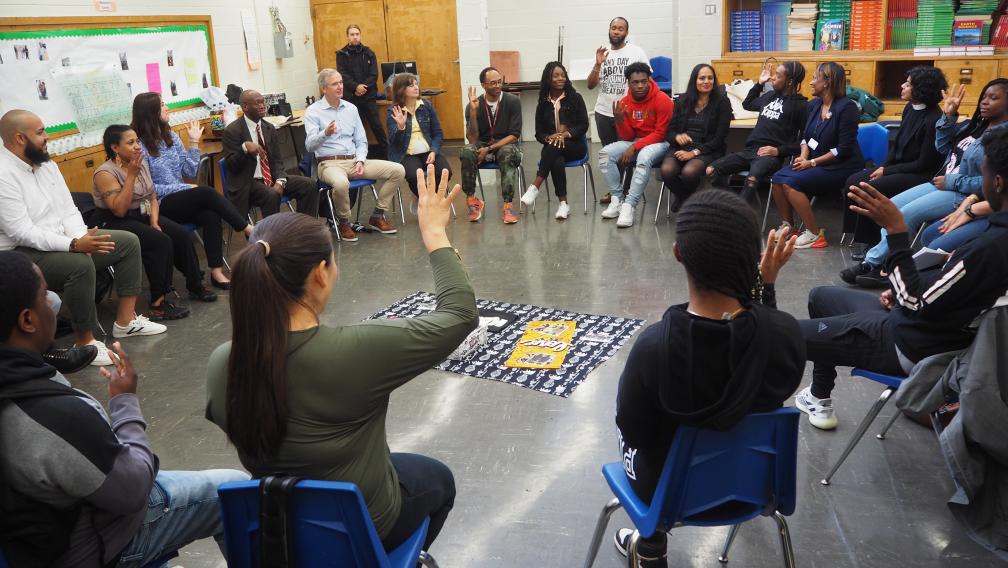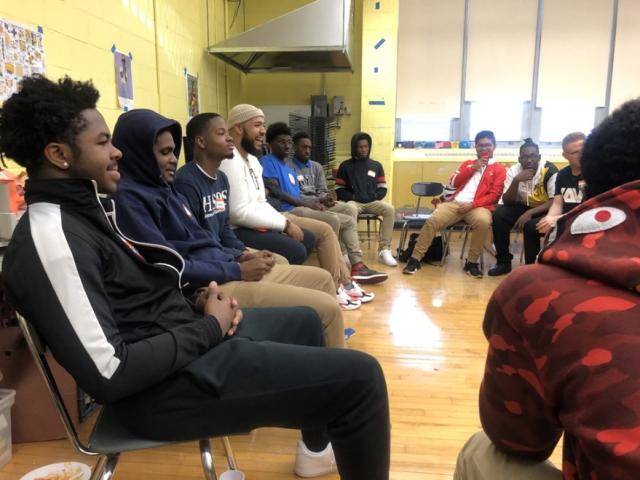Violence is a public health crisis plaguing many of New York City’s low-income communities and communities of color. Gun violence continues to be the leading cause of death for young people ages 15 to 24 years old. Dr. Robert Gore, an emergency medicine physician at Kings County Hospital Center, found that if he could treat his patients’ trauma, he could perhaps quell their impulse to seek retribution and become another fatality. In 2009, this led him to expand his efforts to end gun violence by starting a new organization, Kings Against Violence Initiative (KAVI). KAVI recognizes that many factors contribute to violence, and when a young person resorts to violence, it is often the symptom of many longstanding systemic inequities and unresolved trauma from past violence. Located in central Brooklyn, KAVI uses public health and restorative justice approaches, coupled with trauma-informed practices, to help young people heal and recover from violence. Trinity is proud to have funded KAVI since 2017 through our Racial Justice initiative, with a total investment of $505,000 over the last five years.
KAVI uses a public health approach to addressing violence that centers on immediate intervention, prevention, and community-building. The organization supports youth who are directly impacted by violence or are at risk of violence. KAVI integrates restorative practices to hold young people accountable for their actions while helping them heal. Its school-based programs provide group-level interventions that address the causes and psychological effects of violence. KAVI’s hospital-based programs provide critical wrap-around services to victims following a violent incident to help them recover, build resiliency, and overcome trauma. Each year, KAVI provides these services to over 300 survivors of violence, serving over 650 youth through these violence prevention activities.
The organization also trains leaders in schools, community organizations, and medical centers on restorative justice—a set of practices that embraces the reparation of harm, healing of trauma, reconciliation of interpersonal conflict, and reintegration of people who have caused harm through collaborative decision-making and dialogue—and healing circles, a technique that provides a safe space for victims, those who are accused, and community members to share experiences and build understanding, as a response to conflict and violence. They train over 40 educators and youth service providers per year in restorative justice practices.
KAVI continues to reach over 1,000 young people each year. Participants of its school-based program learn to handle conflict, make better choices to stay away from violence, and become leaders in their communities. The hospital intervention program places participants on a path to safety, healing, and stability. Participants leave the hospital prepared and equipped with the resources needed to return safely to their communities. Finally, the community-based program is helping more providers use restorative justice approaches to promote healing among youth impacted by violence.

